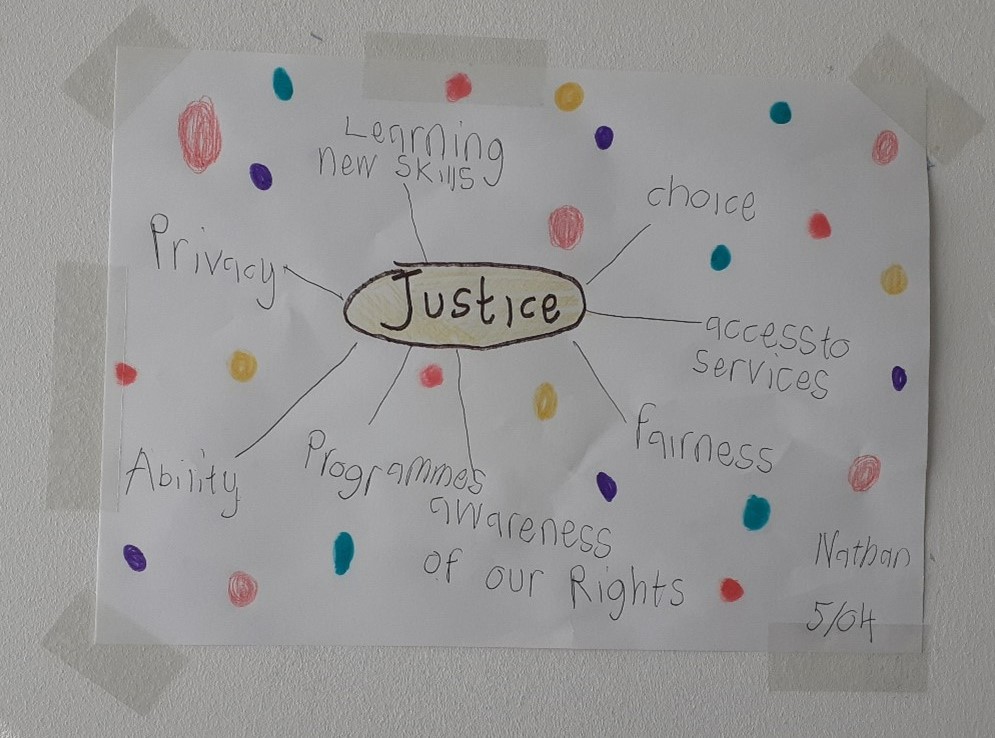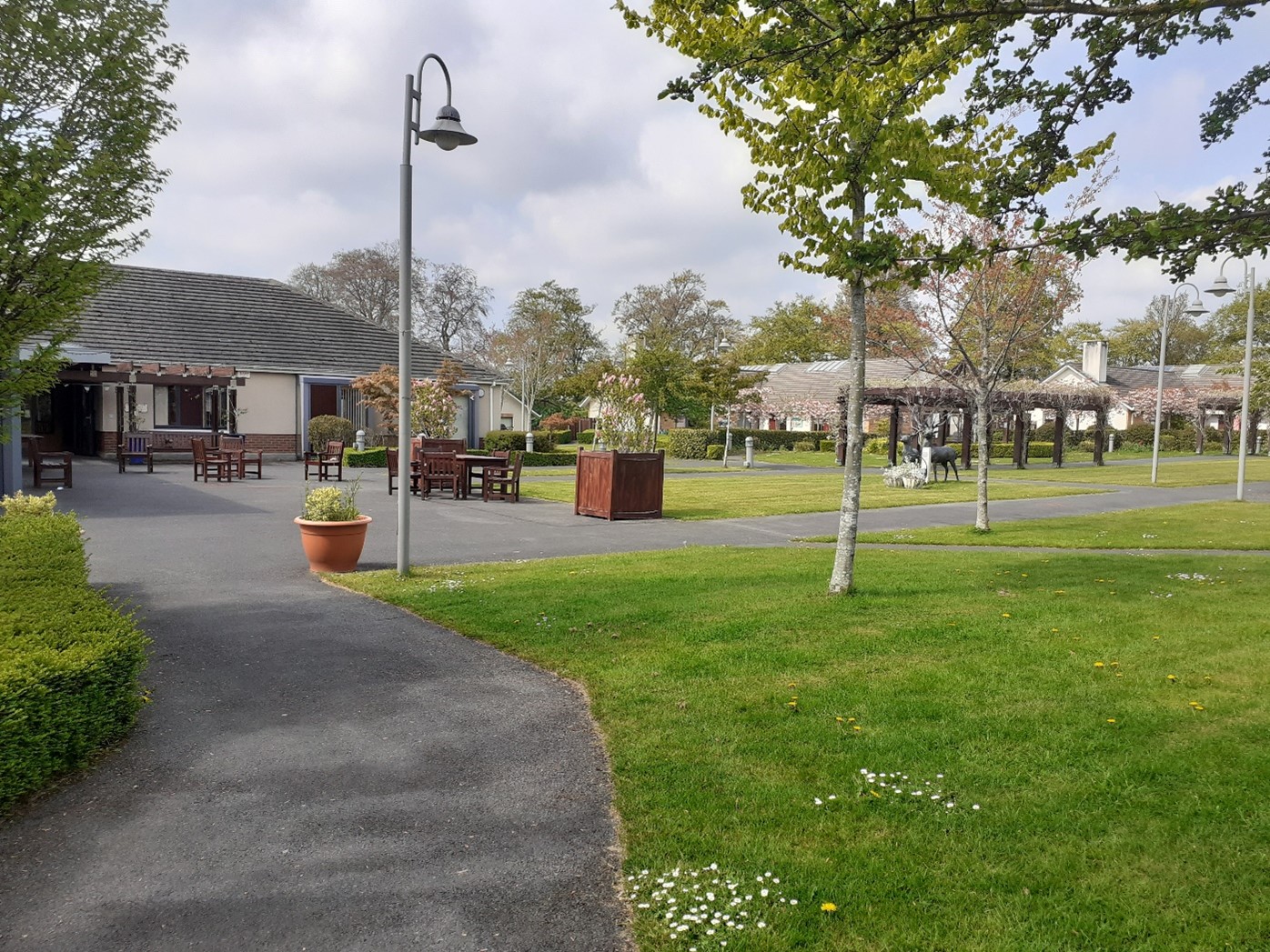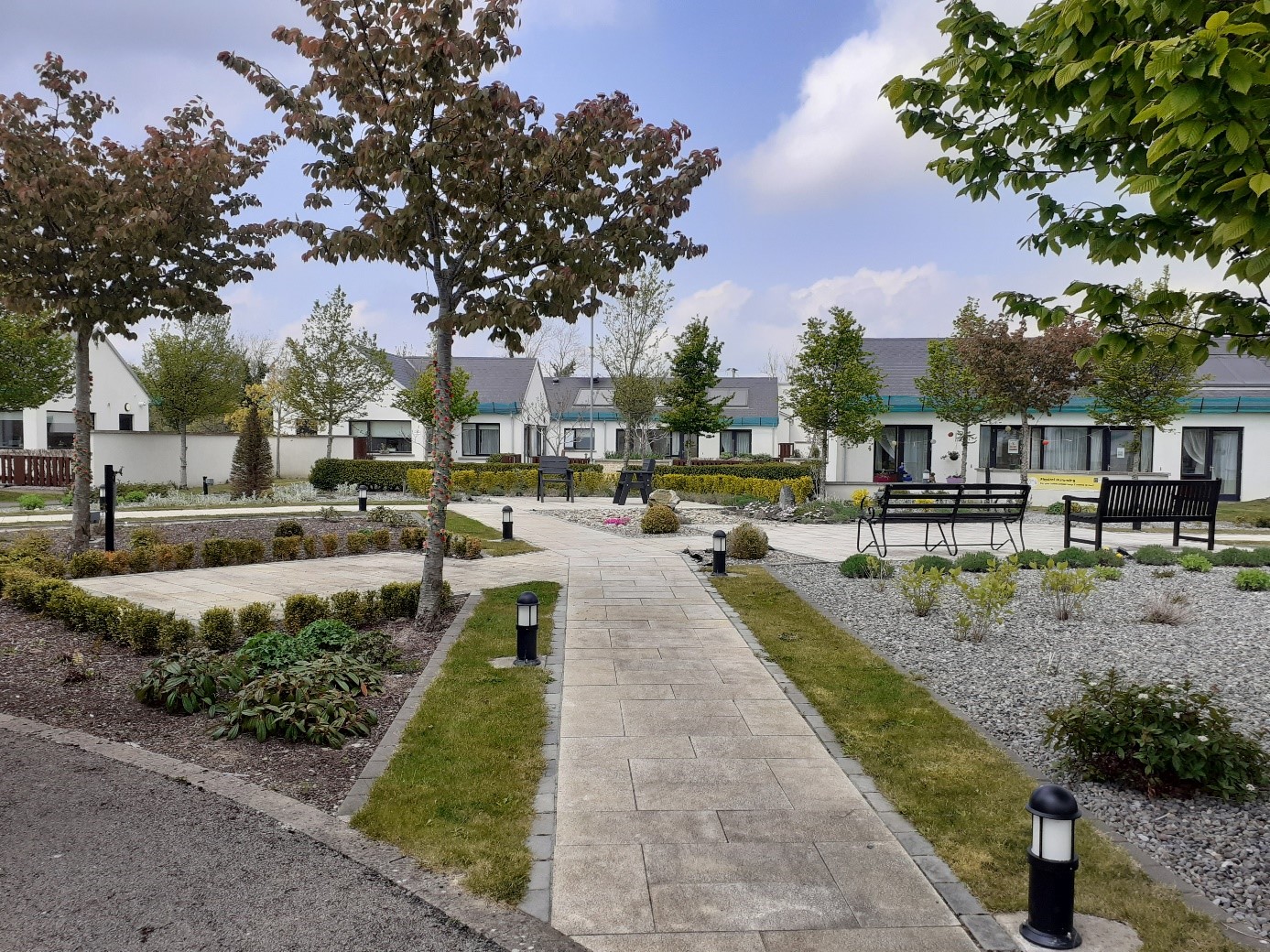May TCAID: In Focus - Visit to AVISTA: My Experience in Learning About and Understanding Intellectual Disabilities - Ms Lara Romero-Hentrich
My name is Lara Romero-Hentrich, and I am a Transition Year Student in St. Kilian’s German School. I have always had an interest in the medical field, especially in relation to Neuroscience and Diseases. And recently I have developed an interest in Intellectual Disabilities and Dementia. I was still quite young to understand the reasons and the research behind both, yet I was curious and willing to learn, and therefore as I grew older, I wanted to pursue that curiosity. It is important that we, as a society, educate ourselves on Intellectual Disabilities in order to help promote, support, and improve the lives of those individuals.

The Core Values of AVISTA Service, Respect, Excellence, Collaboration, Justice, and Creativity, those six powerful words, were certainly regarded, and proven in all places.
Spending the day with AVISTA Services provided me with a vast new range of knowledge and insight into Intellectual Disabilities. Having spent time visiting Day Services and Community Homes and talking with and listening to managers, staff members, and service-users, I noticed and admired the continuous collaboration and support in each working environment, the respect shown to service users, and I will never forget the friendly, welcoming smiles and personalities I met throughout the day.
Rosewood Day Centre
Rosewood Day Centre supports the younger generation with an Intellectual Disability, including those with communication and mobility difficulties, and overly complex healthcare problems. These Individuals get daily support from a multiple MDT (Multi-Disciplinary Team), which includes Physiotherapists, Occupational Therapists, and Speech and Language Therapists. I met the Day Centre Manager, Loraine Hibbits, who kindly showed me the facilities and gave me a brief talk about the Social Activities held during the week for the service-users.
TEES (Training Education Employment Service)
TEES focuses on obtaining suitable employment for people with an Intellectual Disability. The services are very strength-based, in that they prioritize what the individual’s interests are and where their confidence lies. In TEES, there is retail support from people working in the service and from those living at home. What was great to hear was that most employees are disability friendly, but that preparation is key for any employee in the service. There are currently 30 people employed in the community.

St. Louise’s Centre
I visited the outdoor community grounds of St Louise's. St. Louise’s has day service on site and people with an Intellectual Dsiability are allowed to mix with the local community.

Willow (Mid-Stage Dementia) and Meadow (End-Stage Dementia) View
Willow stood for Mid-Stage Dementia and Meadow for End-Stage, which both had an allocated part in the building. I was given a tour by Lynn Galligan, Clinical Nurse Specialist for Dementia. All residents here previously lived in the community, were independent and high functioning and were able to do everyday tasks, e.g. taking the bus. All staff members at Willow and Meadow View are dementia and palliative care trained.

Community Home
The Community Home houses six ladies in total, two of whom have dementia. This home has GP service and MDT support at hand.
Social Activities, the everyday Environmental Support, Dementia, and the guides for keeping a healthy brain provided for people with an Intellectual Disability.
In this section, I will speak about the
Social Activities, the everyday Environmental Support, Dementia, and the guides for keeping a healthy brain provided for people with an Intellectual Disability.
Social Activities in all Day Centre’s and Community Homes are the key promoters of building essential skills, e.g. independence and communication, inclusion in the community, and boosting physical and mental health among individuals with an Intellectual Disability. Previously, social activities would have taken place within the walls of an institution, therefore disallowing people with an Intellectual Disability to mix with and befriend the local non-Disabled community.
"Social inclusion is hugely important and people are encouraged to live as normal a life as possible, even people with complex needs"
Ms. Evelyn Reilly, an Advanced Nurse Practitioner in Dementia and Intellectual Disability
In the community, activities such as swimming, art, beauty therapy, Special Olympics, meditation, and well-being classes, are all offered to service-users, including outdoor trips in small groups to restaurants, cinemas, and shopping centres. These activities are supervised, organised, and supported by the Day Centre and staff care members. Non-Disabled individuals in the local community are
“welcoming to seeing people with an Intellectual Disability, as there is much more awareness in the public,” which promotes equality and further understanding.
Due to the increase in public awareness in relation to Intellectual Disabilities, there have been significant changes in Environmental Support outside in the local community, which has given staff members a lot more confidence in allowing service-users out. I was posititively surprised with how local retail shops and leisure sectors, such as pubs, cinemas, and restaurants had amazing supportive structures and equality regulations in the workplace, treating people with an Intellectual Disability with the same level of respect and kindness as they would any other. Additional support groups such as choir and church services have also become more open and supportive. AVISTA also offers complaint Services for those who may be unhappy in their community, which allows the individual to go to their Key Support Person to raise their concern and put it forward. It will then be brought to the Service Manager and will be discussed by the Service Management Team. The concerns the person has could vary from wanting to go on holiday to disliking the house they are living in. Their complaint will be supported by the Service Management. This comes to show how the world nowadays, as opposed to the world in the 19th century, has changed significantly in supporting the needs of someone with an Intellectual Disability, been educated and shown wider interest, and taken part in research, which has in turn placed wonderful things out there to further include and help people with an Intellectual Disability.
Publishings from the
National Intellectual Disability Memory Service, the principles of quality home-based care and recommendations for safe and easy home living for people with dementia can be used to create a meaningful and supportive environment for the person. Early signs of dementia may include memory loss, difficulties completing everyday tasks, and being confused about time or place. For individuals with an Intellectual Disability,
"The risk of developing dementia is five times greater than for their peers in the general population."
Clinical Research Team for Evidence to Action: Transforming Health Care Delivery, Launching the National Intellectual Disability Memory Service.
"Research has shown an 88% risk of developing clinical symptoms for people with Down Syndrome by the age of 65. Symptoms associated with dementia begin at earlier ages for people with an intellectual disability, [and] therefore, efforts to promote brain health and diagnose disease also need to begin at earlier ages,”
Professor Mary McCarron, Director of the Trinity Centre for Ageing and Intellectual Disability and Chair of Ageing and Intellectual Disabilities at Trinity College Dublin.
IDS-TILDA had stressed the need for systems, structures, and age-appropriate services to promote prompt diagnosis for those experiencing early onset dementia. As a result,
Tallaght University Hospital, and Avista, with Trinity College, signed a
Memorandum of Understanding in 2020, to develop Ireland’s first National Intellectual Disability Memory Service. NIDMS ensures that people with an intellectual Disability have
“equitable access to safe, timely, person-centered dementia assessments, diagnosis, treatment options and post-diagnostic supports.”
The importance of keeping a healthy brain is another key factor in promoting skills, so new connections (Cognitive Reserve) and an independent lifestyle for someone with an Intellectual Disability are very helpful. Keeping healthy and active, spending time with family and friends, trying something new and getting enough sleep are all essential to promoting good brain function. I will explain each Tip in more detail below.
To keep active and to support a healthy heart, it is essential to be active every day. The individual should sit less, stand more, and spend less time watching TV. Instead, they should spend more time moving out and about in their community, doing an exercise they enjoy, e.g. swimming, and practicing balancing exercises, e.g. yoga or tai chi. To promote a healthy heart, staying active is key. Getting their blood pressure checked, eating healthy foods, and checking their weight are core supporters of maintaining a healthy, strong heart.
To further promote Social Activities, it is important to spend time with family and friends. This promotes social skills and enables them to communicate easily. Having fun and chats with friends in the community, talking to family members about important things in their lives and getting active with friends and family can all support this. This could also include trying new activities, such as learning a musical instrument or doing puzzles and crosswords.
Lastly, getting enough sleep is essential for brain health. There are many things that can be done to prevent bad sleep patterns. Going out for walks in the fresh air, avoiding tea, coffee, and electronic devices before bedtime, and making sure their bedroom is dark and quiet can all promote a good night's rest.
What interested me the most throughout the day was learning about the social activities offered to people with an Intellectual Disability, activities to promote good brain health, and the ways of supporting an individual with quite profound dementia. Learning more about dementia and its levels also helped me understand further the supportive healthcare system, the End-of-Life stage, and what can be done to prevent dementia and help someone with dementia. Reading up about good brain health not only helped me understand what can be done for someone with an Intellectual Disability, but also for myself. Now knowing this, I can apply this knowledge in my everyday life.





